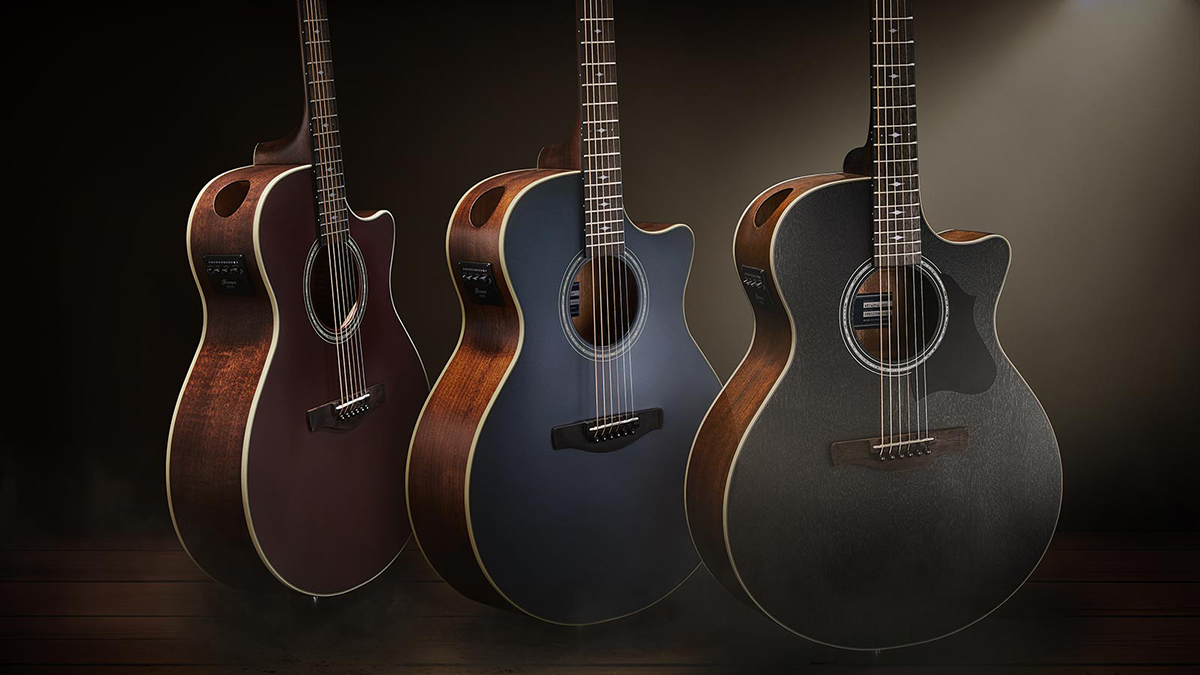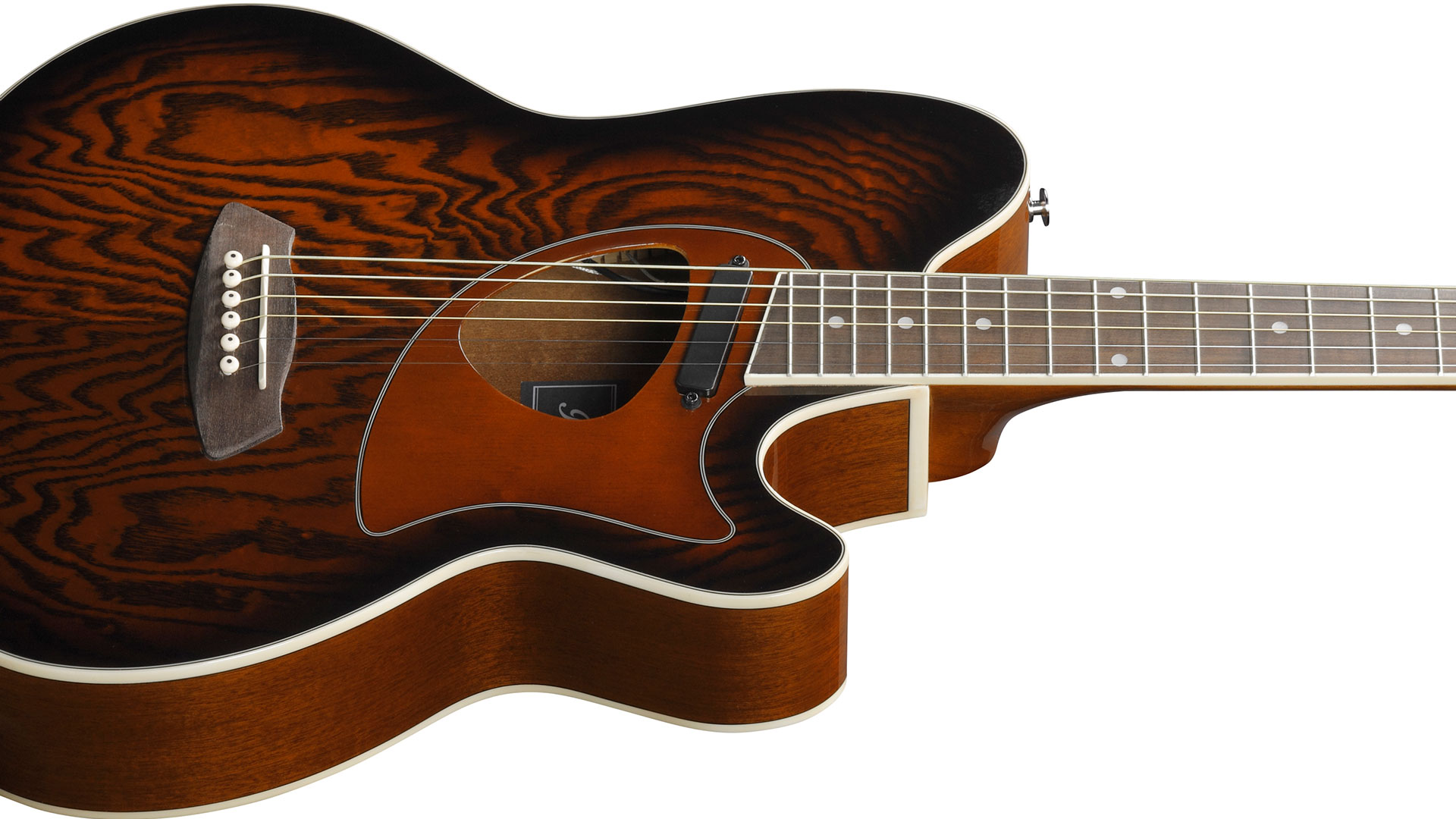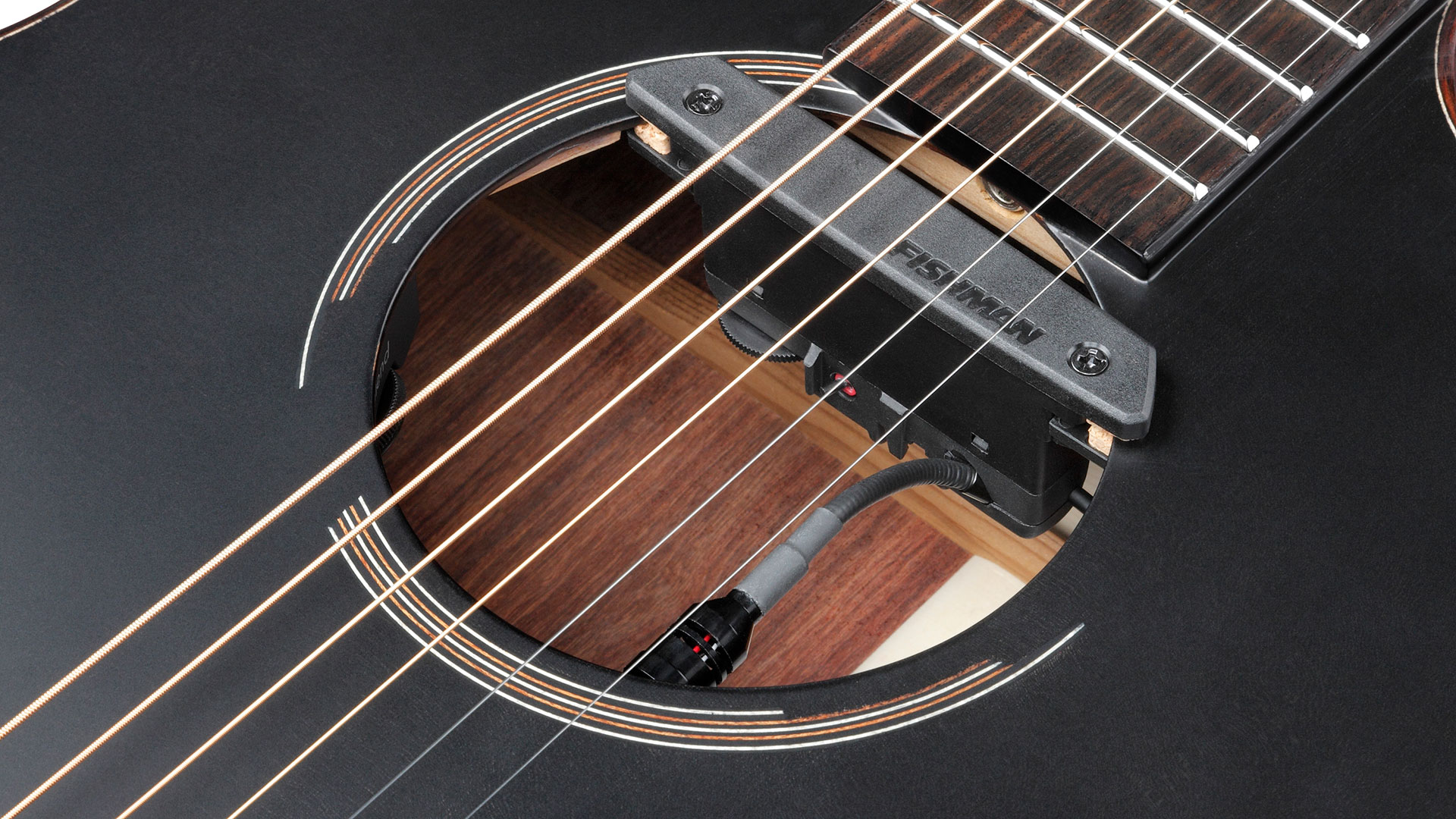In association with Ibanez
“Ibanez strives daily to be the cutting-edge guitar brand. This approach will never change”: How Ibanez is flipping the script on everything you think you know about acoustic guitar design

Through its electric guitar range, Ibanez has assembled an assortment of boundary-pushing instruments, favored by the average shredder and professional players alike.
Championed by A-list artists such as Steve Vai, Joe Satriani, Nita Strauss and more, Ibanez electrics marry top-tier ergonomics and playability with high-end specifications, resulting in player-focussed instruments that pay homage to tradition while also bringing fresh ideas to the fray.
While Ibanez may be associated with its electric catalog, the firm has been applying this exact same philosophy to its acoustic range, which is supported by an equally diverse array of guitar greats from Tim Henson and Jon Gomm to Marcin.
Over the years, the company has been flipping the script on conventional acoustic guitar design, curating a collection of instruments that channel Ibanez’s keen spirit of innovation – as well as versatility and affordability – into forward-thinking acoustics unlike any other on the market.
“Ibanez has always been a brand that has evolved in response to the rapid change in musical trends and by listening to the players,” Ibanez tells Guitar World. “The development of acoustic guitars is no different for us.
“Acoustic guitars have a long history and tradition, but Ibanez believes the philosophy of Ibanez is to respond flexibly to players' voices with originality, while respecting but not being overly constrained by traditions.”
Ibanez is at the forefront of mainstream high-performance acoustics, and that has been made clear over the past few years. Across its range, the firm places an emphasis on innovation, versatility, enhanced electronics and affordability.
All the latest guitar news, interviews, lessons, reviews, deals and more, direct to your inbox!

Its A.I.R.port range, for example, utilizes a Side Soundport in order to promote better self-monitoring and sound projection. This is a relatively new development, and something the firm pursued in response to changing player habits.
“With the pandemic, home recording and social media streaming have become more common,” Ibanez observes. “Because of this, there seems to be an increased interest in the sound you are playing, and the importance of monitoring your own sound.
“Whether you are a guitar vocalist or fingerstyle guitarist, having a Side Soundport will allow you to directly hear the subtle nuances of your playing, which will help you to play and perform more comfortably.”
Other features that make Ibanez acoustics stand out include using an array of tonewoods and, perhaps the most crucial aspect, ergonomics.
“This is one of the most important points for the Ibanez brand,” Ibanez explains. “When developing a new body shape, we study competing brand guitars thoroughly and identify the characteristics of each guitar. We then deliberate the characteristics and determine what elements are important for Ibanez in terms of playability and sound.”
This has resulted in yet more innovation, most notably in the form of the ‘AAD’ Grand Dreadnought body shape found in the Advanced Acoustic series – a collection of guitars that further demonstrates Ibanez’s commitment to delivering player-centric six-strings.

“The latest model, the Advanced Acoustic AAM (Advanced Auditorium body shape) was designed to solve problems of general auditorium bodies, such as weak bass and overall weight balance when held in playing position,” Ibanez goes on.
Further still, Ibanez stands apart from more traditional acoustic brands by developing new ways to improve on established design norms.
“We believe that our acoustic guitars allow players to more freely express their unique art in terms of sound and live performance. Our mission as Ibanez is to meet the diversifying needs of guitar players.
“Even for our traditional shape-based guitars, like the Advanced Acoustic series, they have original body shape for added playability and is equipped with Ibanez’s original XM-bracing.
“Although it is based on the traditional X-bracing arrangement, the tone bracing and finger braces are arranged to create a sound based on the familiar acoustic guitar sound, but with a slightly different character.”
As mentioned, Ibanez’s acoustic range is home to some unique artist acoustics, and Jon Gomm’s JGM11 is one of the firm’s most notable releases in recent times.
Gomm, a fingerstyle virtuoso who is elevating the genre to new heights, needed a totally unique instrument that could accommodate his mind-bending style – and Ibanez was only happy to oblige.
“One of the most impressive episodes in the development of the body shape was the cutaway,” the firm goes on. “It was our common knowledge that the purpose of a cutaway is to improve access to the higher frets, but in Jon’s case cutaway is for percussive purpose.
“The cutaway was necessary to produce a different sound. Jon’s point of view was eye-opening for us. We also designed several prototypes of the bracing as well. We went through much trial and error to evaluate the response dynamics of picking and the frequency response Jon was looking for.”
We are currently living in an era of high-performance acoustic guitars, and Ibanez – through its commitment to player-centric builds and innovation – is helping lead the way.
“Over the years, Ibanez has developed products that focus on playability based on the voices of players,” the firm continues. “This approach will never change.
“Ibanez strives daily to be the cutting-edge guitar brand. At our core, we respect the history and tradition of the acoustic guitar, but we also embrace out-of-the-box ideas that respect players’ perspective in acoustic guitar development to create instruments that perform well.”
Head over to Ibanez to find out more.

Matt is the GuitarWorld.com News Editor, and has been writing and editing for the site for five years. He has a Masters in the guitar, a degree in history, and has spent the last 19 years playing everything from blues and jazz to indie and pop. During his GW career, he’s interviewed Peter Frampton, Zakk Wylde, Tosin Abasi, Matteo Mancuso and more, and has profiled the CEOs of Guitar Center and Fender.
When he’s not combining his passion for writing and music during his day job, Matt performs with indie rock duo Esme Emerson, and has previously opened for the likes of Ed Sheeran, Keane, Japanese House and Good Neighbours.

